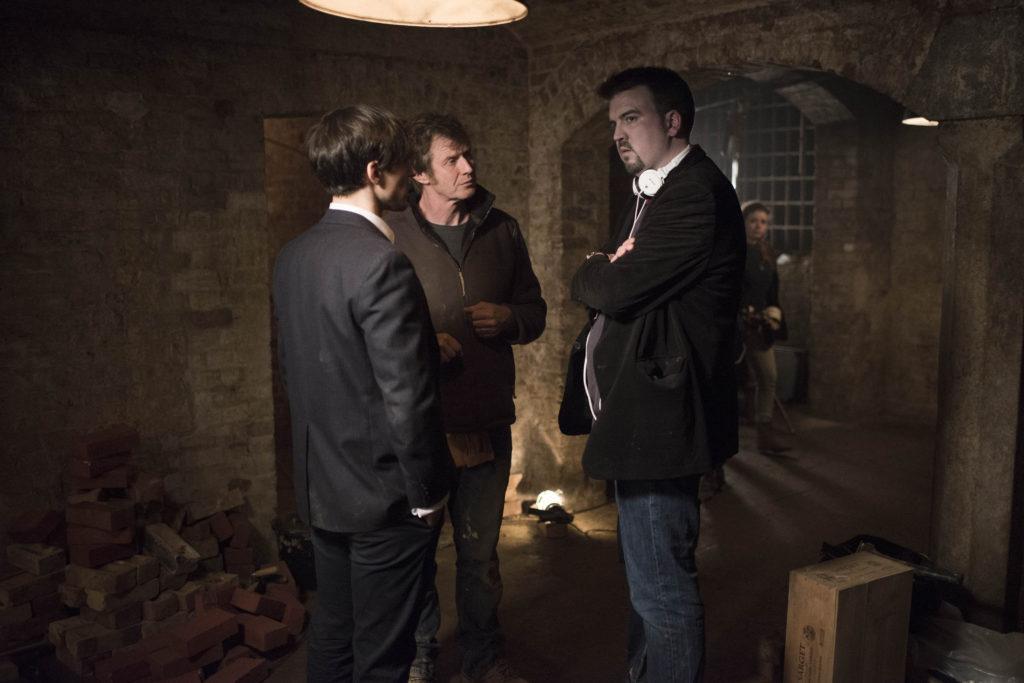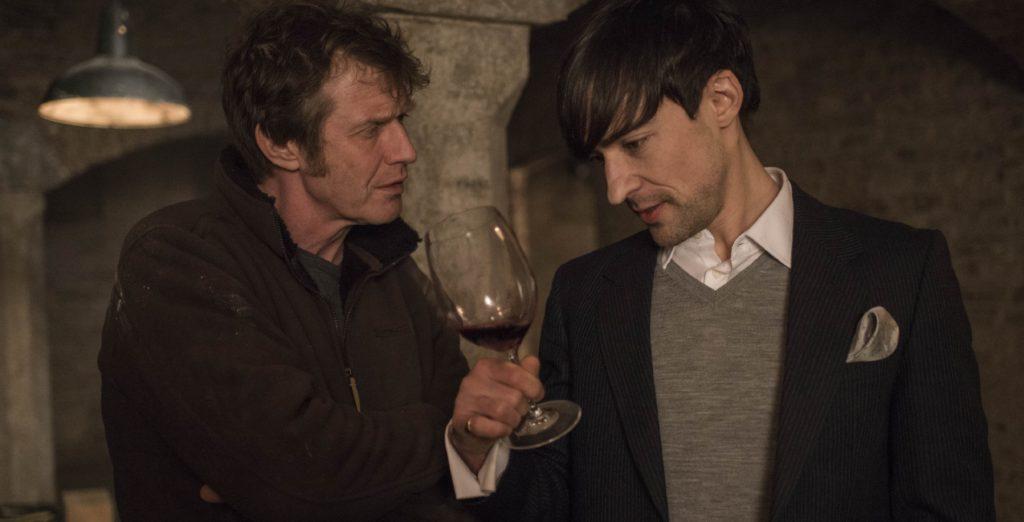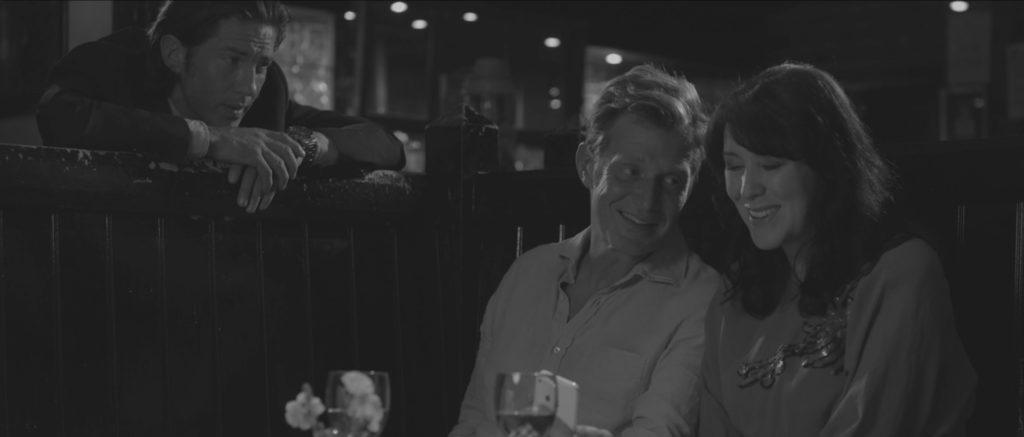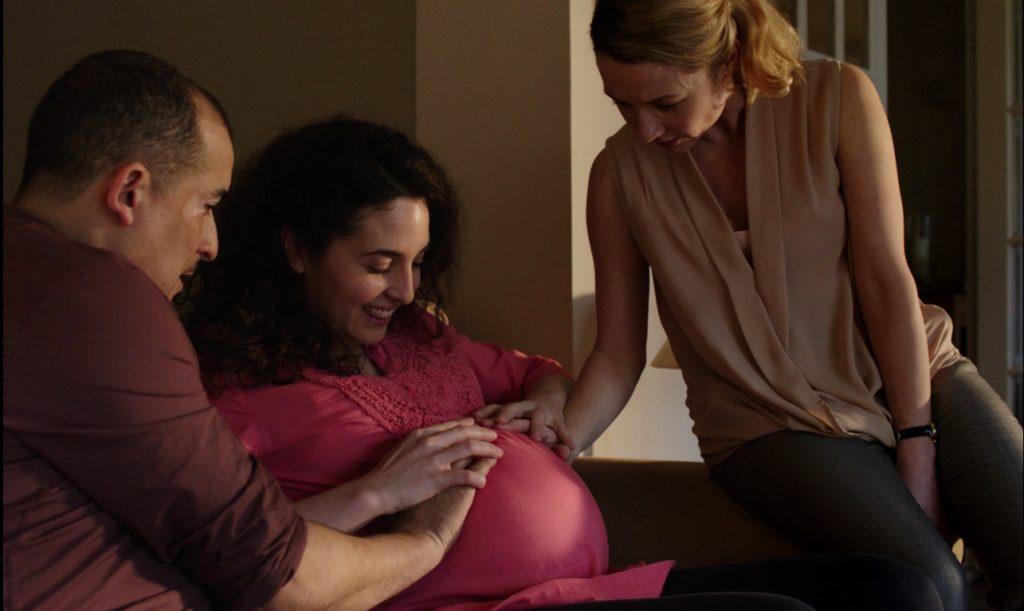Prolific film critic, writer and director Neville Pierce talks to us about his recently released collection of short films, getting praise from David Fincher and what it takes to get behind the camera.

Neville Pierce made a name for himself writing for major publications (Esquire, The Guardian, The Sunday Times) and as a contributing editor for Empire before making the jump to writing and directing his own films. He took the time to chat to us about three of his recently available short films in particular as well as his journey, the relationships he’s made along the way and where he’s going next.
David Fincher described Bricks as “a morbid yet classy take on a morbid classic”. Seeing the word morbid come twice in the same sentence from David Fincher, of all people, is quite powerful. How did that quote come about?
I’ve interviewed Fincher a lot over the years, first for Total Film and then Empire and various newspapers, and eventually summoned up the courage to tell him I wanted to make films. I sent him Bricks and then nervously waited to hear what he thought – because he’s not someone who’s afraid to say if he doesn’t rate something. So to get an endorsement from him meant a lot. I felt like I’d done my job.
Part of what makes Bricks work so well is its sound, it captures that haunting echo of an old brick cellar perfectly. Was that sound difficult to capture or did it come naturally from the location?
We shot in Clerkenwell House of Detention, which is a dank cellar which had a very clammy, unsettling atmosphere. But we also had a terrific sound team, including Raoul Brand, who has mixed each of my shorts since then. We were also helped a lot, in terms of unease, by the score from David Julyan. I’d met him during my time as a journalist. I thought it was a bit of a leap to expect someone who’d done The Descent and Memento to want to do this, but figured, ‘Why not?’ So I asked and he said yes. He also did a terrific job on Lock In.
There are notes of Eddie Redmayne in Blake Ritson’s chilling performance in Bricks, was there a particular influence or inspiration for his character outside of the original Poe story?
I thought of William, Blake’s character, as someone who had inherited money but acted like he’d earned it. I can think of a few inspirations in government…

Lock In deals with very difficult and raw subject matter, especially in the climate that we live in now. Were there any themes in your work that have really frightened you as a director?
I don’t know that the themes really frighten – they’re just horribly fascinating. The way everyday people hide things and justify anything. My dad was a cop, he’s retired now, and he told me that anyone, in the right/wrong circumstances, could do anything. Now, I guess that I say it, that is frightening.
Some familiar names for our readers crop up frequently in your films. Two brilliant past contributors, Savannah James-Bayly and Jim Page, specifically. How did your relationships with the key crew start out? Have you known one another for a long time or did it all come together more recently?
I met Savannah in passing at The Pitch, a competition I’m a judge for, and thought she seemed smart and capable. Later that year I was looking for a producer for Bricks and Sam Renton, who was already on board as DP, said he’d heard she was good. We met again, hit it off and went from there. She’s great. I think Jim and I had chatted on Twitter and then I watched Mouse X – a really good short which he cut, directed by Justin Tagg – and asked him to do Bricks. I love that he is honest about problems but also forward with solutions. He appreciates the whole equation, not simply his part of it, and I value him immensely.
Jason Flemyng delivers some sterling work in both Bricks and Ghosted, any plans to steal him away from Matthew Vaughn as your good luck charm in the future?
Absolutely. Not only is he really skilled, he’s also just a delight to have on set. He’s done umpteen films but never lost his enthusiasm, or gratitude that he gets to make his living as an actor. So yes, I want to steal him away. But I will generously share him with millionaire hitmaker Matthew Vaughn, one of our most successful filmmakers…

Each short has its own distinct tone and genre, Ghosted particularly is a noticeable change of mood from your other work, do you have a preference to commit to one genre in the future or to branch out and keep trying new things?
We’d planned to make Lock In after Bricks, but then that got delayed because of actor availability and we had a gap. Jamie Russell, who had co-written Bricks, had written Ghosted and I thought the script was very charming and sent it to Alice Lowe and things came together quickly after that. It wasn’t a calculated decision to be eclectic – it was just how it worked out. I don’t think you really control what you’re going to feel the need to make – it just grabs you and doesn’t let go.
Do you have plans, or hopes, to expand any of the shorts into a feature?
Not currently. Bricks is its own, self-contained thing. The others could possibly expand, but there’s no pull to go back there at the moment.
Many readers may recognise you more from your work as a film critic and, while overlap definitely exists, it’s often thought of as being rare. Have you found that one discipline helps or hinders you with the other?
It’s both a help and a hindrance. I’ve spent a lot of time on set, watching great filmmakers, and that’s like your own personal film school in some ways. But I think it also made me a little paralysed, in terms of being concerned whether I could write and make something good enough. After a while the fear of failure is outweighed by the fear of not trying.

One of the most common suggestions that writers and directors give when asked about improving technique is to watch films, As someone who’s watched and analysed films for a living, how true have you found that to be?
I think you probably absorb quite a lot that you don’t necessarily realise or could explicitly express. There are some things – shot choices, dialogue – that feel instinctual but are likely just there because of osmosis. And then there are, of course, other times when you’re just nakedly ripping someone off.
What’s next for you?
I’ve shot another short, Promise [pictured above] – written by Hannah Lee, who was one of the finalists in The Pitch in 2016. I really liked her script, which is about an asylum seeker who becomes a surrogate mother in order to remain in the UK, and offered to direct it. We have a cracking cast – Rebecca Callard, Nabil Elouahabi, Lara Sawalha – and I’m very proud of the result. Mark Romanek, who is a director I really admire, called it “superbly done”, so we stuck that on the poster and later in 2018 you can see for yourself. Aside from that I’m writing feature scripts, one of which is an adaptation of a memoir, the other an original thriller. I’m also developing a bigger thriller, with Lee Brazier and Matt Wilkinson (who produced Lock In), which Fincher is exec producing. Plus, you know, watching a lot of Netflix.
Bricks, Ghosted and Lock In are available to view now on vimeo and via nevpierce.com.


